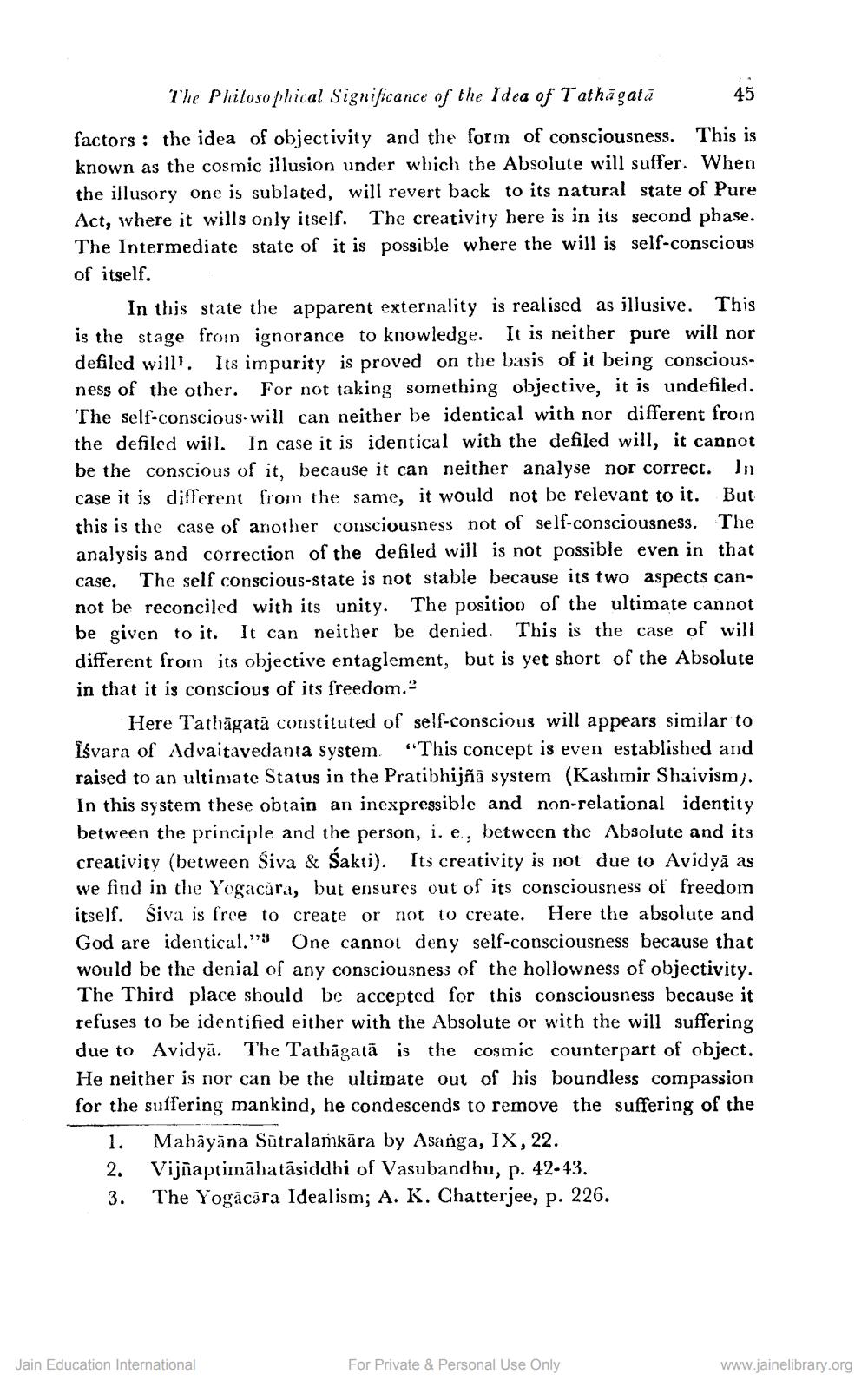________________
The Philosophical Significance of the Idea of Tathāgatā
45
factors : the idea of objectivity and the form of consciousness. This is known as the cosmic illusion under which the Absolute will suffer. When the illusory one is sublated, will revert back to its natural state of Pure Act, where it wills only itself. The creativity here is in its second phase. The Intermediate state of it is possible where the will is self-conscious of itself.
In this state the apparent externality is realised as illusive. This is the stage from ignorance to knowledge. It is neither pure will nor defiled willl. Its impurity is proved on the basis of it being consciousness of the other. For not taking something objective, it is undefiled. The self-conscious will can neither be identical with nor different froin the defiled will. In case it is identical with the defiled will, it cannot be the conscious of it, because it can neither analyse nor correct. In case it is different from the same, it would not be relevant to it. But this is the case of another consciousness not of self-consciousness. The analysis and correction of the defiled will is not possible even in that case. The self conscious-state is not stable because its two aspects cannot be reconciled with its unity. The position of the ultimate cannot be given to it. It can neither be denied. This is the case of will different from its objective entaglement, but is yet short of the Absolute in that it is conscious of its freedom."
Here Tathāgată constituted of self-conscious will appears similar to Isvara of Advaitavedanta system. “This concept is even established and raised to an ultimate Status in the Pratibhijña system (Kashmir Shaivism). In this system these obtain an inexpressible and non-relational identity between the principle and the person, i, e., between the Absolute and its creativity (between Siva & Sakui). Its creativity is not due to Avidyā as we find in the Yogacăra, but ensures out of its consciousness of freedom itself. Siva is free to create or not to create. Here the absolute and God are identical.'8 One cannot deny self-consciousness because that would be the denial of any consciousness of the hollowness of objectivity. The Third place should be accepted for this consciousness because it refuses to be identified either with the Absolute or with the will suffering due to Avidya. The Tathāgatā is the cosmic counterpart of object. He neither is nor can be the ultimate out of his boundless compassion for the suffering mankind, he condescends to remove the suffering of the
1. Mabāyāna Sūtralamkāra by Asanga, IX, 22. 2. Vijnaptimāhatāsiddhi of Vasubandhu, p. 42-43. 3. The Yogācāra Idealism; A. K. Chatterjee, p. 226.
Jain Education International
For Private & Personal Use Only
www.jainelibrary.org




